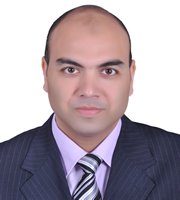- Chairman's Welcome
- Computer Engineering Program
- Program Educational Objectives
- Student Outcomes
- Enrollment and Graduation
- Program Assessment
- Faculty and Staff
- Undergraduate Program
- Academic Advisors
- Research Capabilities
- Advisory Board
- Student Organizations
- Alumni
- Events
- College of Sciences & Engineering
- SU Cadence Membership
Dr.Yasser Ismail
 |
|
|||||||
|
Dr. Yasser Ismail is an Associate Professor in the Electrical and Computer Engineering Department at Southern University and A&M College (SU) and the Program Leader of the Navy FreshStart Summer Program since 2024. He has more than 20 years of professional experience in teaching, research, and program development across multiple international institutions. Prior to joining Southern University, Dr. Ismail served on the faculty at Mansoura University, the University of Louisiana at Lafayette, Umm Al-Qura University, the University of Bahrain, and Zewail City of Science and Technology. Dr. Ismail holds a B.Sc. and M.Sc. in Electronics and Electrical Communication Engineering from Mansoura University (Egypt), and both a M.S. and Ph.D. in Computer Engineering from the University of Louisiana at Lafayette (USA). At Southern University, Dr. Ismail leads research and student training initiatives focused on machine learning and artificial intelligence, VLSI and FPGA system design, cloud computing, cybersecurity, and the Internet of Video Things (IoVT). His current projects also integrate AI/ML applications in healthcare, digital video processing, and wireless communication systems. As Program Leader of the Navy FreshStart initiative, he collaborates with federal and academic partners to strengthen pathways for underrepresented students in STEM through hands-on AI, cybersecurity, and robotics experiences. Dr. Ismail has authored or co-authored over 66 peer-reviewed publications, including books, book chapters, and journal articles. He has served as a National Science Foundation (NSF) panel reviewer (2019–present) and as Principal Investigator (PI) or Co-PI on more than 17 funded research projects supported by NSF, state, and international agencies. His research and educational excellence have been recognized through multiple awards, including the Partnering, Research, Innovation, Development, and Entrepreneurship (P.R.I.D.E.) Award from Southern University. In addition to his scholarly work, Dr. Ismail serves as an Associate Editor for the International Journal of Computing and Digital Systems (IJCDS) and sits on several editorial boards and conference committees. He has supervised more than 13 master’s and doctoral students, developed three new courses within the College of Sciences and Engineering, and actively promotes STEM outreach through workshops for undergraduate and K-12 students.
|
||||||||
|
||||||||
| Please press HERE for more information about Dr. Yasser Ismail. | ||||||||
| To see more activities for Dr. Ismail, please press HERE and HERE. | ||||||||
